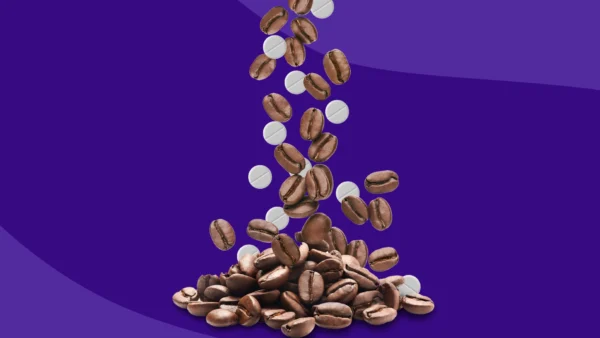Antidepressants are medications used to treat depression, a condition that often has different symptoms in different age groups. In general, it causes prolonged feelings of sadness and loss of interest in once pleasurable activities. Many people with depression become withdrawn, hopeless, angry, lethargic, and even experience physical symptoms like weight changes or sleep problems.
Antidepressants are some of the most common prescriptions in the U.S. The Centers for Disease Control and Prevention (CDC) reports that 15.4% of Americans aged 40-59 took an antidepressant in the last 30 days.
But middle-aged adults aren’t the only ones with depression. It occurs in the very young and very old, too. The CDC notes that approximately 2.7 million children between ages 3 and 17 have depression, often in combination with other mental health disorders such as anxiety and behavior problems. Rates of depression in older adults are estimated in the 1% to 5% range, but can be 10 times higher for those who require home health care or hospitalization, according to the CDC.
How old do you have to be to take antidepressants?
“The sooner you catch depression, the better,” says Beth Salcedo, MD, past president of the Anxiety and Depression Association of America and medical director of the Ross Center. “It needs to be diagnosed and treated early. Typically, we try to treat it with psychotherapy, behavior therapy, and family interventions because these methods empower people and give them tools to last a lifetime. But, certainly, medication is an appropriate option. And there’s not an age where I would say this person is too young or too old for antidepressants. There are so many factors that play into whether you give someone an antidepressant.”
What does depression look like in kids?
While they can share similar symptoms, kids typically experience depression differently than adults. “Children are more likely [than adults] to present with sudden mood changes, temper tantrums, and irritability rather than a depressed mood,” says Natasha Nambiar, MD, a medical advisor for eMediHealth. “Difficulty with sleep, weight loss, and anxiety appear more common in younger children, whereas increased eating, weight gain, and slowness in motor activity seem to increase in adolescents.”
Can kids be prescribed antidepressants?
The FDA has approved antidepressants for children, with use that increases with age. One study from 2018 found that kids in the youngest group of the study (3-5 years old) got just 0.8% of prescriptions for psychiatric drugs (including antidepressants), whereas adolescents accounted for 7.7%. The American Psychological Association (APA) reports that 3.4% of kids ages 12-19 have taken antidepressants in the last month.
What are the best antidepressants for children?
The Food and Drug Administration (FDA) has only approved two drugs to treat depression in children. Prozac (fluoxetine), a selective serotonin reuptake inhibitor (SSRI)—a drug that helps boost levels of serotonin, one of those “feel good” chemicals, in the brain—is approved for kids as young as 8. Lexapro (escitalopram), another SSRI, is approved for kids 12 and older.
That’s not to say a doctor won’t prescribe another antidepressant for a child. Providers can use their clinical judgment to prescribe a different antidepressant to a child, even if it’s not approved by the FDA for that purpose. This is called off-label use. Some doctors prescribe certain SSRI antidepressants—such as Celexa (citalopram) and Zoloft (sertraline)—for off-label use in children with depression.
“Most of the SSRIs are considered safe for all age groups, and most of the drugs in this class can be widely used,” says Dr. Salcedo. An older class of drugs, called tricyclic antidepressants, are not often prescribed—for the young or old—primarily because they have more side effects and are more dangerous if overdosed than newer antidepressants.
Regardless of what antidepressant is prescribed, experts say the drugs work best for moderate-to-severe depression (degrees of depression are based on things such as the number of symptoms, symptom duration, and how much symptoms interfere with life). Antidepressants can also work better when used in tandem with therapy, especially talk therapy or cognitive behavior therapy, which helps people change the way they think about certain situations and experiences.
What does depression look like in seniors?
Depression in seniors can masquerade as the normal aging process, and as such, often goes undiagnosed and untreated. “Sometimes depression in the elderly can mimic dementia,” says Dr. Salcedo. “So you might see short-term memory loss, word-finding-difficulty, trouble with names. It’s really important to rule out depression when you see cognitive impairment in the elderly.” Additionally, older people are more likely than younger people to experience certain medical conditions, such as chronic pain and heart disease, that can contribute to depression.
According to the National Institute on Aging, other symptoms of depression in older people include:
- Fatigue
- Problems sleeping
- Moving or talking slowly
- Changes in weight or appetite
- Difficulty concentrating
- Restlessness
- Suicidal thoughts
Should antidepressants be used in seniors?
Although they need to be chosen carefully due to potential side effects and drug interactions, antidepressants can and should be used to treat depression in seniors. Research published in the journal Expert Review of Neurotherapeutics notes high rates of other medical conditions, cognitive decline, and suicide in older adults with untreated depression. What’s more, the researchers also note that when used in conjunction with psychotherapy, antidepressants for older adults significantly improve quality of life and lower death rates.
What are the best antidepressants for elderly patients?
When it comes to antidepressants for elderly patients, most experts recommend SSRIs or selective norepinephrine reuptake inhibitors (SNRIs), which help increase certain brain chemicals such as serotonin. These drugs tend to have fewer serious side effects and drug interactions than older antidepressants on the market. They also seem to be just as effective in older people as they are in younger ones, although some doctors suggest starting at half a normal dose and gradually increasing it while watching for side effects and mood improvement. If no improvement is seen after four weeks on a full dose, you may need a different medication.
RELATED: SSRIs vs. SNRIs
Commonly used antidepressants in children and seniors
SSRIs are prescribed to both age groups. They are used widely, and considered safe for most people.
Dosages are not only determined by age. Symptoms, reaction, weight, and other factors play a role in prescribing antidepressants.
| Common antidepressant dosages by age group | ||||
|---|---|---|---|---|
| Antidepressant | Child/Adolescent | Adult | Senior | Learn more |
| Lexapro (escitalopram) | 10-20 mg daily (12-17 years old) | 10-20 mg daily | 10-20 mg daily | Lexapro dosage guide |
| Prozac (fluoxetine) | 10-20 mg daily (8 years and older) | 10-80 mg daily | Your doctor may start with a low dose and gradually increase if necessary. How low depends on age and other health factors. | Prozac dosage guide |
| Celexa (citalopram) | Not approved for those under 18, but may still be prescribed in an off-label use. Dosage varies by patient | 20-40 mg daily | Not more than 20 mg daily in adults older than 60; higher doses can cause heart rhythm abnormalities | Celexa dosage guide |
| Effexor XR (venlafaxine) | Not approved for use in people under 18 years old | 37.5-225 mg daily | 37.5-225 mg daily | Effexor XR dosage guide |
| Pristiq (desvenlafaxine) | Not approved for use in people younger than 18 years old | 50 mg daily | Dosage may need to be adjusted. People older than 65 may experience low blood pressure (orthostatic hypotension) or low sodium levels in the blood (hyponatremia) | Pristiq dosage guide |
| Cymbalta (duloxetine) | Not approved for depression in people younger than 18 years old | 40-60 mg daily | 40-60 mg daily | Cymbalta dosage guide |











